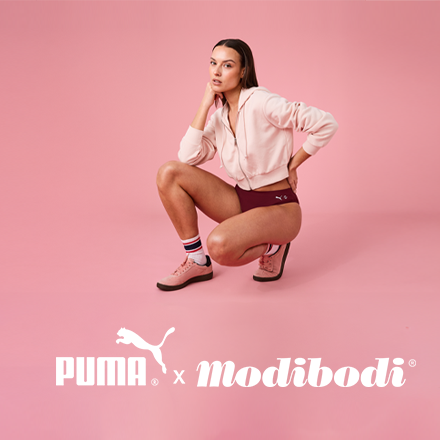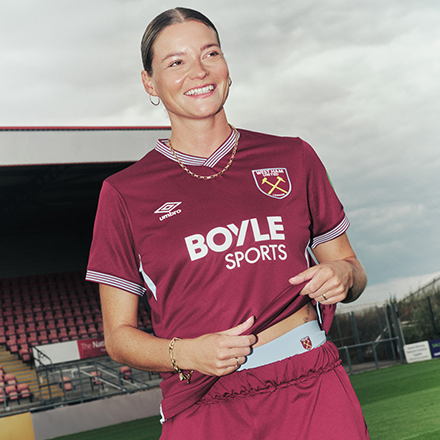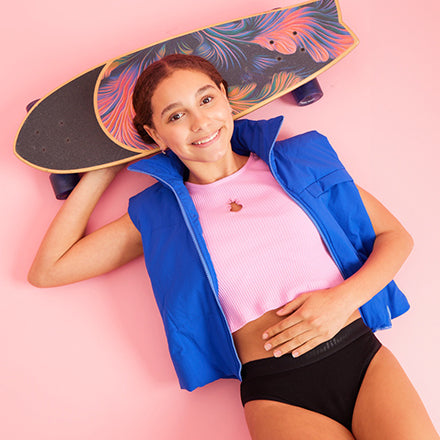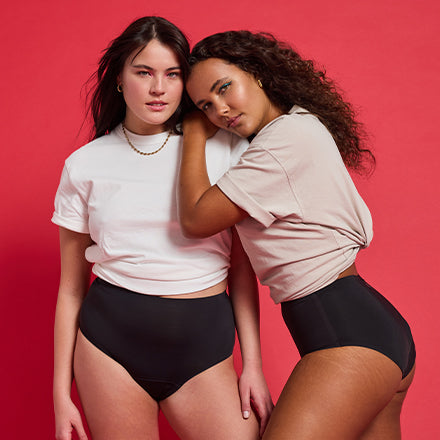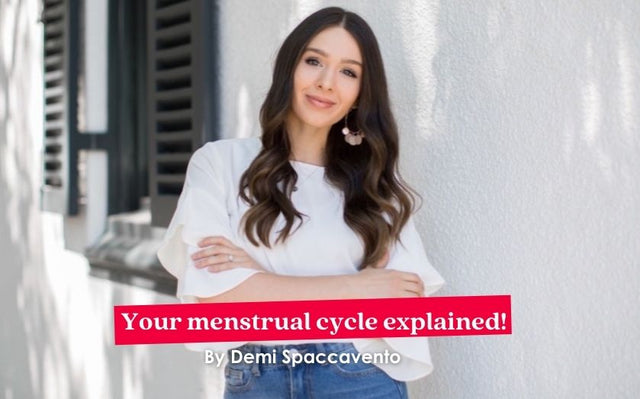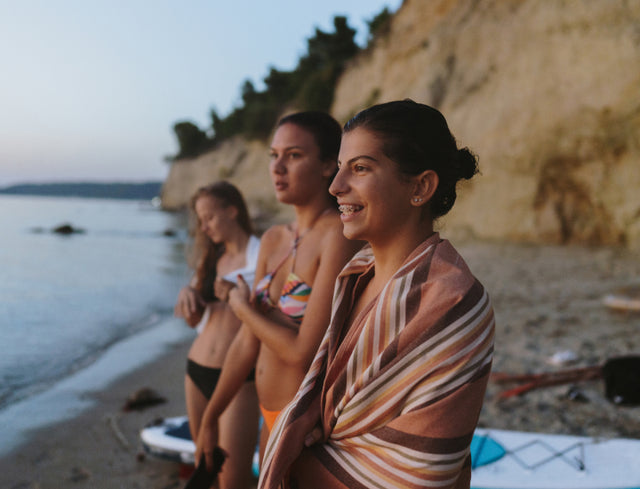International Day of Persons with Disabilities (IDPwD) is held on 3 December each year. It is a United Nations observed day celebrated internationally which aims to increase public awareness, understanding and acceptance of people with disabilities and celebrate their achievements and contributions.
In 2020 we launched our Detachable Bikini, to help people with disabilities manage periods and incontinence. The side fastening means the underwear can be put on and removed while sitting or laying down, without having to lift a foot or remove any clothing – giving back independence and allowing ease of changing.
Since then we have launched our Adaptive Brief and Luxe Clasp Bikini to extend our Adaptive Range
We believe that in working closely with the disabled community to create better products that are beneficial to them, also bringing awareness and representation amongst mainstream media to amplify their voices.

Monique Murphy, an Australian Paralympic swimmer who regularly works with Modibodi, says "We are missing the presence of people with a disability. Mainstream media doesn’t show a realistic image of the range of people that make up our community,"

Monique Murphy modelling our Detachable Bikini

Emily Prior, who was born with cerebral palsy, was eight years old when she began to notice the lack of representation of people with disabilities in mainstream media, especially advertising and marketing.
"I recognised the exclusionary messages in advertising, that people with disabilities were being excluded from mainstream media and advertising. The media told me that my disability was a tragedy. It told me I didn’t exist or belong, and it made me feel invisible. I needed to change those perceptions around disability because many people still think that disabled lives are not worth living.
I love that Modibodi includes girls and women of all different body shapes and sizes. Our bodies are all different and as a young teenage girl it is so important that I get see “real” bodies and bodies just like mine. I obviously also REALLY love that they include disability too!” says Emily.
We believe demonstrating awareness and understanding about disability helps change negative stereotypes and helps create a positive and more inclusive society.



Emily Prior with our range for tweens/teens

Cherie one of our models in Luxe (left) and Adaptive (right)
"Since first working with Modibodi, I have come to love them even more and their support in disability representation has made this a partnership that I am truly proud of. I'm so happy that we're starting to see products with accessibility features that actually look appealing" - Cherie who does ecomm and lifestyle modelling for Modibodi. Read more from Cherie here as interviewed her for Disability Pride Month.

Cait Ruth (left) and Kate Stanforth (right)
"Disabled people get periods too and these briefs help make that experience more sustainable and easier to manage. I’m genuinely excited about it and I’d never have imagined that." Cait Ruth, blogger from NZ
They’re stylish and the quality is amazing. The adaptive design actually works and is super handy for managing medical devices, and they’re so comfortable. Disability inclusion is often an afterthought for new technologies but these briefs are proof that Modibodi wants to provide their products to everyone who needs them." Cait said.
Kate Stanforth is a dance teacher, model, disability activity and charity founder from Northumberland. After becoming disabled at 14, she’s strived to make the world more accessible with a particular focus on the dance industry. Now best known for her inclusive dance academy and high profile dance campaigns, she’s a woman on a mission to give everyone who wants to, the chance to dance”
"Part of my disability means that some days I can’t move my legs very well, or at all! Having the adapted Modibodi means I can independently put on my underwear, which is really important to me”

Eliza (far left), Emily Prior, Robyn Lambird, Sophie Carrigill (far right)
We asked some of our community how non-disabled people and brands can get involved more:
Emily Prior: I would love to see individuals and brands become even more inclusive. Sometimes when brands are being inclusive, they forget about disability. Obviously, I would love to see MORE disabled models in their advertising.
Eliza: I think talk about it, pay Disabled creators, hire Disabled people and learn about Disability.
Cherie: I would LOVE it if I saw more non-disabled people in my feed sharing the work of disabled creators. Unfortunately, most of the people I tend to see share the work of disabled creators are other disabled people. It would give me a lot of hope in the work that I do if I started to see more non-disabled people understanding and becoming passionate about disability advocacy by amplifying our voices.
Looking to follow some disabled Instagram content creators to follow? Here's some we follow and work with – including some recommendations from our interviewees:
@crutches_and_spice (also a TikTok queen)

